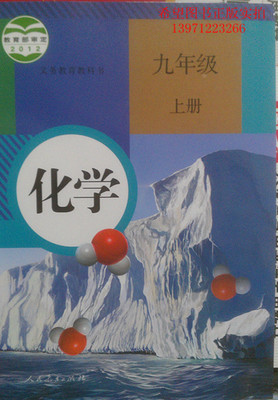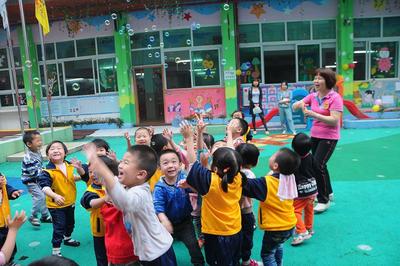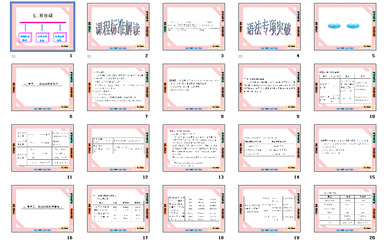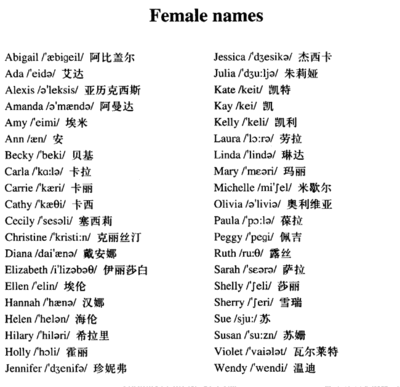Unit 1 重点词组
1.by making flashcards 通过做单词抽认卡
2. ask…for help 向某人求助 Unit 2 重点词组:
3.read aloud 朗读 1. be more interested in 对…更感兴趣.
4.that way (=in that way) 通过那种方式 2. on the swim team 游泳队的队员.
5.improve my speaking skills 3. be terrified of 害怕.
提高我的会话技巧 4. gym class 体操课.
6.for example (=for instance)例如 5. worry about. 担心.
7.have fun 玩得高兴 6. all the time 一直, 总是
8.have conversations with friends 7. chat with 与…闲聊
与朋友对话 8. hardly ever 几乎从不
9.get excited 高兴,激动 9. walk to school = go to school on foot
10.end up speaking in Chinese take the bus to school = go to schoolby
以说汉语结束对话 bus 步行去学校
11.do a survey about… 做有关…的调查 10. as well as 不仅…而且
12.keep an English notebook 记英语笔记 11. get into trouble 遇到麻烦
13.spoken English (= oral English) 英语口语 12. make a decision 做出决定
14.make mistakes 犯错误 13. to one’s surprise 使某人吃惊的是
15.get the pronunciation right 使发音准确 14. take pride in 为…感到骄傲
16.practise speaking English 练习说英语 15. pay attention to 留心, 注意
17.first of all 首先 16. consist of 由…组成/构成.
18.begin with 以…开始 be made up of 由…组成/构成.
19.later on 随后 17. instead of 代替, 而不是
20.in class在课堂上 18. in the end 最后, 终于
21.laught at 嘲笑 19. play the piano 弹钢琴
22.take notes 记笔记
23.enjoy doing 喜欢干… Unit 3 重点词组:
24.write down 写下,记下 1. be allowed to do sth 被允许干…
25.look up (v + adv) 查找,查询 allow sb to do sth 允许某人干…
26.native speakers 说本族话的人 allow doing sth 允许干…
27.make up 编造,虚构,化妆,打扮 2.sixteen-year-olds = sixteen-year-old boys
28.around the world 全世界 and girls 16岁的孩子
29.deal with 对待,处理,解决 3. part-time jobs 兼职工作
30.worry about (be worried about) 担心,担忧 4. a driver’s license 驾照
31.be angry with 生某人的气 5. on weekends 在周末
32.stay angry 生气 6. at that age 在那个年龄段
33.go by 消逝 7. on school nights 在上学期间的每个晚上
34. regard…as… 把…当做… 8. stay up 熬夜
35.complain about/of 抱怨 9. clean up (相当与及物动词) 清扫
36. change…into… 把…变成… (= turn into) 10. fail (in) a test 考试不及格
37.with the help of 在…的帮助下 11. take the test 参加考试
38. compare…to (with)… 把…和…作比较 12. the other day 前几天
39.think of (think about) 想起,想到 13. all my classmates 我所有的同学
40.physical problems身体上的问题 14. concentrate on 全神贯注于
41.break off 中断,突然终止 15. be good for 对…有益
42. not…at all 根本不,全然不 16. in groups 成群的,按组的
17. get noisy 吵闹(系表结构)
18. learn from 向某人学习
19. at present 目前,现在 Unit 4 重点词组:
20. have an opportunity to do sth 1、give it to charity 把它捐给慈善机构
有做…的机会 2、medical research 医学研究
21.English-English dictionary 3、What if …… 如果…怎么样?
英英词典 4、get nervous 紧张
22. at least 至少 5、take a big exam 参加大考
23.eight hours’ sleep a night 6、help with 有助于
每晚8小时的睡眠 7、in public 在公共场合
24. an old people’s home 敬老院 8、hardly ever 几乎不
25. take time to do sth 花费时间干… 9、the whole school 全校
26. primary schools 小学 10、without permission 为经许可
27. have…off 放假,休息 11、be(make) friends with 与…交朋友
28. reply to 回答,答复 12、ask one’s permission 请求××的允许
29. get in the way of 妨碍 13、introduce…to… 把…介绍给…
30. a professional athlete 职业运动员 14、invite…to do… 邀请…干…
31. achieve one’s dreams 实现梦想 15、social situations 社会环境
32. think about 思考,考虑 16、not… in the slightest 根本不,一点也不
33. in the end 最后,终于 17、right away 立刻,马上
34. be serious about 对…热忠/极感兴趣 18、all day 全天
35. spend…on + n. spend …(in) + v-ing 19、be friendly to 对…友好
在…上花费时间/金钱 20、at lunch time 在午饭时间
36. care about 关心,担心,在乎 21、a bit shy 有点害羞
37. agree with 同意… 22、English speech contest 英语演讲比赛
23、represent the class 代表班级
24、come top 名列第一(前茅)
25、let … down 使…失望
Unit8 重点词组: 26、come up with 提出、想出
1.clean up 把…打扫干净 27、be sure of + n./pron.
2.cheer up使振奋 28、the rest of the students 其余的学生
3.put off推迟 be sure to do 相信…
4.give out分发 be sure +that 从句
5.set up建立,创立 29、have a lot of experience (in) doing sth
6.think up想出 在做某事方面有经验
7.put up张贴 30、deal with 对付,处理
8.fix up修理 31、come out 出版
9.take after与…相像 32、give advice on… 在…方面提出意见、建议
10.work out发展,成功 33、by accident 偶然地,无意之中
11.ask for要求 34、hurry to do sth 匆匆忙忙干…
12.hungry people饥饿的人们 35、an internet friend 网友
13.make a plan制定计划
14.at once立刻
15….fill…with…把…装满
Unit7 重点词组:
1.go on vacation 去度假 Unit9 重点词组:
2.trek through the jungle 徒步穿越丛林 1.be used for用来做…
3.some day 有朝一日 2.be invented by由某人发明
4.one of the liveliest cities 3.light bulb电灯泡
最有活力的城市之一 4.the number of…的数量
5.be supposed to do sth. 应该干。 5.by mistake 错误的
6.pack light clothes 穿薄衣服 6.in the end 最后
7.take a trip 去旅行 7.salty enough足够咸
8.provide sb with sth = provide sth for sb为某人提供某物 8.by accident偶然,意外
9.be away 离开,远离 9.not…until……直道…才
10.the answer to the question 问题的答案 10.knock into撞上(某人)
11.according to 根据。按照。
12.work as tour guides 做导游的工作
13.dream of 梦想,想到 Unit10 重点词组:
14.less realistic dreams 不现实的梦想 1.give sb. a ride顺便送某人一程
15.be willing to do sth. 愿意干。 2.come out 出现
16.achieve one’s dreams 实现梦想 3.run off跑掉
17.sail across the pacific 横渡太平洋 4.on time准时
18.hold on to 保持,不要放弃(卖掉) 5.break down坏掉
19.take it easy 从容 轻松 不紧张 6.show up出席
20.Niagara Falls 尼亚加拉大瀑布 7.set off出发
21.Eiffel Tower 艾菲尔铁塔 8.get married结婚
22.Notre Dame Cathedral 巴黎圣母院 9.sell out卖光
23.this time of year 一年中的这个时候 10.wait for sb. to do等待某人做某事
24.in general 通常 ,大体上, 一般而言
Unit 6 重点词组:
Unit 5 重点词组: 1.expect to do sth.期望干……
1、be long to属于 expect sb. to do sth期望某人干……
2、listen to classical music听古典音乐 2.catch up with追上,赶上
3、at school上学、求学、在学校 3.different kinds of music各种不同的音乐
4、go to the concert去听音乐会 4.quiet and gentle songs轻柔的歌曲
5、have any/some idea知道 have no idea不知道 5. take…to… 带……到……
6、a math test on algebra有关代数的数学考试 6. remind…of…使某人想起或意识到……
7、the final exam期末考试 7.her own songs她自己的歌曲
8、because of因为 8.be important to对……重要
9、a present for his mother送给她妈妈的礼物 9.Yellow River黄河
10、run for exercise跑步锻炼 10.Hong Tao’s latest movie洪涛最近的电影
11、wear a suit穿西装 11.over the years多年来
12、make a movie拍电影 12.be sure to do sth.务必干……一定干……
13、in our neighborhood在我们附近、在我们小区 13.one of the best known Chinesephotographers
14、have fun玩耍、取闹 世界上最有名的中国摄影家之一
15、his or her own idea她(他)自己的看法 14.on display展览,展出
16、late night深夜 15.come and go来来往往
17、an ocean of许许多多、无穷无尽的 16.can’t stand不能忍受
18、be care of=look out当心、小心 17.look for寻找
19、pretend to do sth假装干… 18.feel sick感到恶心,不舒服
20、use up用完.用光 19.have a great time玩得高兴,过得愉快
20.to be honest说实话
21.be lucky to do幸运的是……![[转载]九年级上册英语语法 九年级英语语法总结](http://img.aihuau.com/images/02111102/02122633t01dd2f5a0e3b6a544d.jpg)
22.my six-month English course
我6个月的英语课
23.most of my friends我的大部分朋友
24.go for去找某人,想法得到某事物
25.stay healthy保持健康
26.French fries薯条
27.stay away from与… 保持距离
28.be in agreement意见一致(后跟短语.句子)
29.barbecued meat烤肉
30.a tag question反意疑问句
31.be bad for对……有害
初中英语动词时态复习讲义
一般现在时
一、动词的第三人称词尾变化:
当主语是第三人称单数时,谓语动词需加-s或-es:
规则 | 动词原形 | 第三人称单数形式 |
一般在词尾加-s,(清辅音后读∕s∕,在浊辅音后读∕z∕;在t后读∕ts∕,在d后读∕dz∕。) | play leave swim | plays leaves swims |
以字母s,x,ch,sh,o结尾的词加-es,读∕iz∕,如果动词原形词尾已有e,则只加-s。 | pass fix teach wish do | passes fixes teaches wishes does |
以辅音字母加y结尾的词,先变y为i, 再加-es,读∕z∕。 | study carry fly | studies carries flies |
注意:动词have的第三人称单数是has.
写出下列动词的单数第三人称形式。
1.cook_______2.watch________3.build_________4.have________5.wash________
6.enjoy ______7. go _________8 receive ______9 cry______10. close________
11.drive_______12. choose ______13. play ________14. reach________
二. 一般现在时的用法
1) 表示经常的或习惯性的动作,常与表示频度的副词连用。常用的频度副词有:always、often、 usually、seldom、never。频度副词在句中通常放在行为动词之前,系动词、助动词之后。
例如: He often goes swimming in summer.他夏天经常游泳。
I usually leave home for school at 7 every morning.每天早上我七点离开家。
2)表示现在的状态。
例如:My father is at work.He is very busy. 我父亲在工作,他很忙。
The boy is twelve. 这男孩十二岁。
3)表示主语具备的性格、特征和能力等。
例如:All my family love football .我全家人都喜欢足球。
My sister is always ready to help others . 我妹妹总是乐于助人。
Ann writes good English but does not speak well.安英语写得不错,讲的可不行。
4)表示客观真理,客观存在,自然现象。
例如:The earth moves around the sun. 地球绕太阳转动。
Shanghailies in the east of China. 上海位于中国东部。
5)表示按计划或安排好的,或将要发生的动作,可用一般现在时表将来。但只限于start,begin,leave,go,come,arrive,return,takeplace等。
例如:The train leaves at six tomorrow morning.火车明天上午六点开。
He comes back tonight. 他今晚回来。
6)在复合句中,当主句是一般将来时,时间或条件状语从句的谓语动词只能用一般现在时来表示将来要发生的动作。
例如: I'll tell him the news when he comes back.他回来时,我将告诉他这个消息。
If you takethe job , they will talk with you in greaterdetails.
如果你接受这份工作,他们将和你谈谈细节。
巩固练习:
1、Lucy likes going skating with her friends.(改写成否定句)
________________________________________________________
2、Aunt Li’s son has ten toy bears. (对划线部分提问)
________________________________________________________
3、His watch costs 300 yuan. (变成一般疑问句并否定回答)
________________________________________________________
4、I like being a nurse for the old. (变成一般疑问句)
________________________________________________________
5、张叔叔每天乘坐地铁上班。
________________________________________________________
6、我们每周日常花三小时在图书馆看书。
________________________________________________________
7、我爷爷常常晚饭后出去散步。
________________________________________________________
一般过去时
一、动词过去式的规则变化:
构成规则 | 动词原形 | 动词过去式 |
一般在动词原形末尾加-ed,(在清辅音后读∕t∕;在浊辅音和元音后读∕d∕;在 ∕t∕,∕d∕后读∕id∕。 | look play work | looked played worked |
结尾是e的动词在末尾加-d | like live hope | liked lived hoped |
末尾只有一个辅音字母的重读闭音节,先双写这个辅音字母,再加-ed | plan stop drop | planned stopped dropped |
结尾是“辅音字母+y”的动词,先变“y”为“I”再加-ed | study worry cry | studies worries cries |
注:不规则动词过去式参见八年级下册P142。
写出下列动词的过去式形式。
1.put ________2. drink _______3. cry _______4. pull ________5. ride________
6.begin ________7. sit ________8. run _________9. take_________10.sweep _______
11.stop_______12. solve _______13. rob ________14. wait _________15. lie_________
16. turn_______17. explore _______18. drop _______19. clean ______20.produce _____
21.get__________22.laugh________23.pay________24.die_________25.prefer______
二. 一般过去时的用法
1)表示过去某个时间所发生的动作或存在的状态。常和表示过去的时间状语yesterday, last week, an hour ago,just now, the other day,in 1982等连用。在一般过去式中,要表达“过多少时间之后”,一般用after。几年后。
例如:Where did you go just now? 刚才你上哪儿去了?
After a few years,she started to play the piano.几年后,她开始弹钢琴。
2)表示在过去,经常或反复发生的动作。常与often,always等表示频度的副词连用。
例如:When I was a child, I often played football in thestreet.
我是个孩子的时候,常在马路上踢足球。
3)一般过去式也可与today,this week,this month,thisyear等表现在的时间壮语连用,但这些时间壮语须指过去的时间,决不包含“现在”“此时此刻”的意思。
例如:Did you see him today?今天你看见他了吗?
巩固练习:
1、Yesterday I went swimming.(改写成否定句。)
________________________________________________________
2、Hewas born in Shanghai.(对划线部分提问)
________________________________________________________
3我昨天买了一辆新自行车。
________________________________________________________
4、我前天读了一本书。
________________________________________________________
一般将来时
一、一般将来时的构成:助动词will+动词原形
在口语中,will在名词或代词后常缩为’ll,wii not常简缩为won’t。在疑问句中,主语为第一人称时(I和we)时,常用助动词shall。
例如:She’ll go to play basketball. 她要去打篮球。
Shall we go to the zoo? 我们要去动物园吗?
二、一般将来时的用法
1、表示将来某个时间要发生的动作或存在的状态,常与tomorrow, next year等连用。例如:I'llmeet you at the school gate tomorrow morning.
2、表示将来经常或反复发生的动作。
例如:I’ll come and see you every Saturday nextyear.明年我将每个星期六来看你。
3、表示说话人对于将来的看法、假设和推测,通常用be afraid,be/feel sure,hope,know,think等后面的从句或与副词perhaps,possibly,maybe等连用。
例如:I think she’ll go back home for supper. 我想她会回家吃饭。
Maybe she’ll go to the gym.也许她会去体育馆。
三、be going to +不定式,表示将来。
1、表示主语进行某一行动的打算意图。这种打算常经过预先考虑并含有自己做好某些准备的意思。即计划,安排要发生的事。
例如:What are you going to do tomorrow? 明天打算作什么呢?
The play is going to be produced nextmonth。这出戏下月开播。
2、表示说话人确信如此或有某种迹象表明某事即将发生。
例如:Look at the dark clouds, there is going to be astorm. 看那乌云,快要下雨了。
3、注意:be going to 和will之间的区别。
1两者都用于预测时,be going to意指有迹象表明某件事将要发生,属客观的推测;will则意指说话人认为/相信某件事将要发生,属主观的推测。
2两者在时间的发生上,be going to通常表示马上要发生或相当快就要发生的事情;而will不指明任何具体时间,可以指遥远的未来。
例如:He is gong in to be better. 他的病就要好起来了。
He will be better. 他的病会好起来了。
3两者都表示意图时,be going to含有预先计划、准备的意思;will则指未经过预先思考或计划,是临时的一种决定。
4在条件壮语从句中,be going to表将来,will表意愿。
例如:If you are going to make a journey, you'd better get readyfor it as soon as possible.
如果你将要去旅行,最好尽快做好准备。
Miss Gao will tell you the answer if you ask her.如果你去问高老师,她会告诉你答案。
四、be +不定式表将来,表示客观安排或受人指示而将要做某事。
例如:We are to discuss the report nextSaturday.我们下星期六讨论这份报告。
五、be about to +不定式,意为马上做某事。不能与tomorrow, next week 等表示明确将来时的时间状语连用。
例如:He is about to leave for Beijing. 他马上要去北京。
巩固练习:
1. Mrs. Brown is going to buy a digitalcamera. (对划线部分提问)
________________________________________________________
2.My boss is going to fly to London on business the dayafter tomorrow. (用often改写句子)____________________________________________________
3.Sam will visit Brazil next week. (变成一般疑问句并否定回答)
________________________________________________________
4. 他们今晚要去看足球赛。
________________________________________________________
5.金一家人什么时候去长城啊?
________________________________________________________
过去将来时
一、过去将来时的构成:1、would/should+动词原形
2、was/were going to+动词原形
二、过去将来时的用法:
1、表示从过去某时看将要发生的动作或存在的状态。常用于主句是一般过去时的宾语从句中。
例如:He said that he would finish his work before 9o’clock.
他说他会在九点之前完成工作。
2、表示过去的某种习惯,只要would。
例如:Whenever he has been in trouble,we would give him ahand.
每当他遇到困难时,我们总会伸出援助之手。
巩固练习:
1、He said that he(come)backtonight.
2、I thought it(rain)soon.
现在进行时
一、现在进行时的构成:am/is/are+动词的现在分词
二、动词V-ing的构成形式
规则 | 原形 | -ing形式 |
一般在动词原形末尾加-ing | listen spend stay | listening spending staying |
以不发音字母e结尾的动词,先去掉e,再加-ing | have prepare close | having preparing closing |
以重读闭音节结尾的动词,如果末尾只有一个辅音字母,应先双写这个辅音字母,再加-ing | sit begin run put | sitting beginning running putting |
以ie为重读音节结尾的动词,先去掉e,把i改为y,再加-ing | lie die | lying dying |
以er结尾的动词,如是重读音节结尾,先双写r,再加-ing;如不是重读音节结尾,就直接加-ing | prefer water | preferring watering |
基数词的书写规律:
(1)1到12这十二个基数词写法没规律可循,所以要逐个记。
(2) 13到19都是以-teen结尾的。其中fourteen, sixteen, seventeen, nineteen这四个基数词都是在相应的个位数后直接加teen,但thirteen, fifteen, eighteen 这三个词是不符合这一规律的。
( 3 ) 20到90中“整十”的基数词都以-ty结尾的。其中sixty, seventy, ninety 这三个基数词都是在相应的数词后加-ty,但twenty, thirty, forty, fifty, eighty这几个词除外。
(4)“几十几”是在“几十”的后面加上个位数字,但两词之间要加上连字符。 如:fifty-five, thirty-nine等。
(5)一百以上的基数词,只需在百位与十位之间加and即可,但hundred 后面不可加-s。如:twohundred and thirty。
基数词的常见用法:
(1)作主语时,谓语动词用单数。 如:Eightis a lucky number. “八”是个幸运数字。
(2)表示年龄,常用be+基数词+(years old)。如:He iseleven years old. 他十一岁。
(3)表示门牌、班级等的号码时,首字母都需大写。
序数词
英语中基数词变为序数词时,一般在基数词后加词尾-th,但有几个词变化特殊,只要记住下面这个口诀,这些问题即可迎刃而解。一、二、三,单独记;八去t,九除e,ve要用f替,整十基数变序数,先把ty变成tie;要是遇到两位数,十位基数个位序,th最后加上去。
解析口诀:one→first,two→second,three→third这三个词变化特殊,要单独记;eight→eighth,nine→ninth,八去t,九去e后再加-th;five→fifth,twelve→twelfth,五、十二把ve换成f再加-th;twenty→twentieth,thirty→thirtieth...整十先把词尾y改为ie再加-th。两位数时则十位数用基数词,个位数用序数词,如:twenty-first。
 爱华网
爱华网



